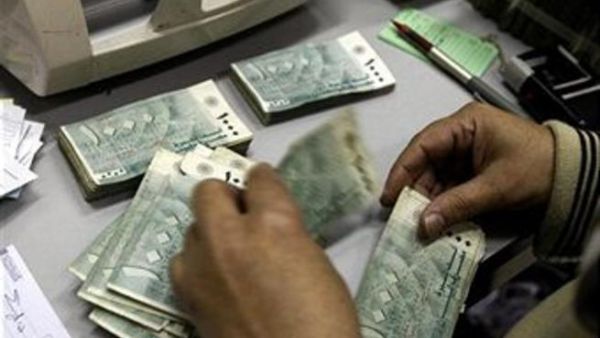Record profits at Lebanon’s listed banks are breathing new life into the country’s fading stock market. Profits rose 2 percent to $989 million at the five listed banks which reported full-year 2011 results, with the country’s biggest lender, Bank Audi, growing its profits by 3.7 percent to over $365 million despite the worst operating environment since 2006.
“Banking stock prices are rising because of good earnings. There’s also no more pressure on banks and the offer is relaxed as most of the selling may have already taken place and I don’t expect more unless something significant happens,” said Yves Rahme, head of equities at Byblos Bank told The Daily Star.
Bank Audi’s listed shares leapt 6.1 percent to $6.1 per share during the week ending Feb. 10, while its GDRs rose 5 percent to $6.3.Also rising were Byblos shares and BLOM Bank’s GDRs which inched up 0.6 percent and 0.9 percent respectively, as the latter continues a one-month rally which has driven the receipts up 4.2 percent to $7.61.
Strong performance by banking stocks overshadowed weaknesses in Solidere’s Class A shares, which broke below $14 for the first time in 10 weeks and trailed the market with a 1.35 percent drop to $13.9. As a result, the BLOM Stock Index rose 1.2 percent to 1,180.67 points and the market capitalization grew 1.4 percent to $10.44 billion by Friday. Trading also reflected investor appetite for banking exposure relative to real estate. Banks dominated 72 percent of average daily traded shares which fell 22 percent to 206,246 shares during the week.
Rahme said the rising demand is natural ahead of dividend distributions. “Investors reacted positively to bank earnings news, in particular because of the comfort in dividend payments. Those holding banking stocks or preferred shares would rather wait until March and April when dividends are paid instead of selling now,” said Rahme. Indeed, banks came through for their loyal shareholders, posting record profits despite setting aside sizeable provisions of $175 million in 2011 at Lebanon’s three biggest lenders, an increase of 140 percent over 2010.
Banque BEMO, whose credit rating was downgraded earlier in 2011 by Moody’s, reported a solid 11.3 percent increase in profits to $9.3 million driven by a 27 percent jump in total assets and deposits to $1.53 billion and $1.3 billion respectively. Deposits at Bank of Beirut, the rising star of Lebanon’s banking industry, grew 22 percent, or $1.63 billion, more than Lebanon’s top three banks combined, although profits stood at $103.4 million with humble growth of 2.6 percent.
Among the biggest three banks, Byblos scored the fastest growth in profits and the biggest balance sheet expansion. Net income inched up 1.2 percent to $180 million in 2011 as total assets and deposits rose 8.6 percent and 7.8 percent respectively to $16.6 billion and $12.82 billion. However, Louis Hobeika, professor of economics and finance at Notre Dame University, told The Daily Star that bank profits are not sustainable. “I don’t think those high profits are sustainable because the private sector will be borrowing less in 2012, so banks will find it difficult to use their funds, in addition to the negative impact from Syrian operations,” said Hobeika.
“Large profits in 2011 are in contrast with the rest of the Lebanese economy, but that is not necessarily a sign of health given the concentration on lending to government,” added Hobeika, who predicts that the shock will come when banks ask the government to pay off some of its maturing debt instead of rolling it over as it always does. “Unlike medium and large private companies in Lebanon, to whom banks should be lending, the government is actually not a safe borrower anymore given the rising deficit and debt,” he said. But interest in the macro picture, from bank exposure to weak public finances, political turmoil and even the positive economic signals identified by international financial institutions, is falling out of favor as investors focus on distributions. “Lebanese investors do not look a lot at economic developments, but focus on dividends instead. We are still at the bottom with most banks, and implied dividend yields are 6-8 percent, so bad domestic and regional political news does not have a big impact on stocks anymore,” said Rahme.
Barring any significant developments, investors may be able to capitalize on the ongoing upward trend in banking stocks. “I expect to see similar trading next week with banks rising and Solidere trading in the $13.8 to $14 range,” predicted Rahme who believes that the market is becoming more rational despite persistent fears.








